PVAC Organizing team
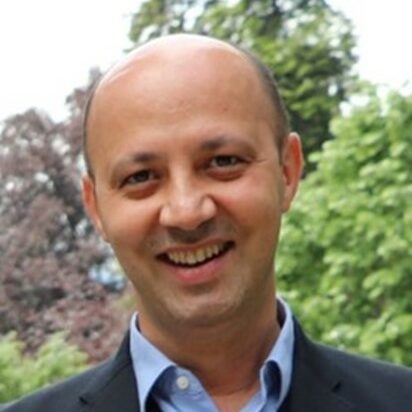
Kamel
Senouci
Director PVAC, University of Geneva
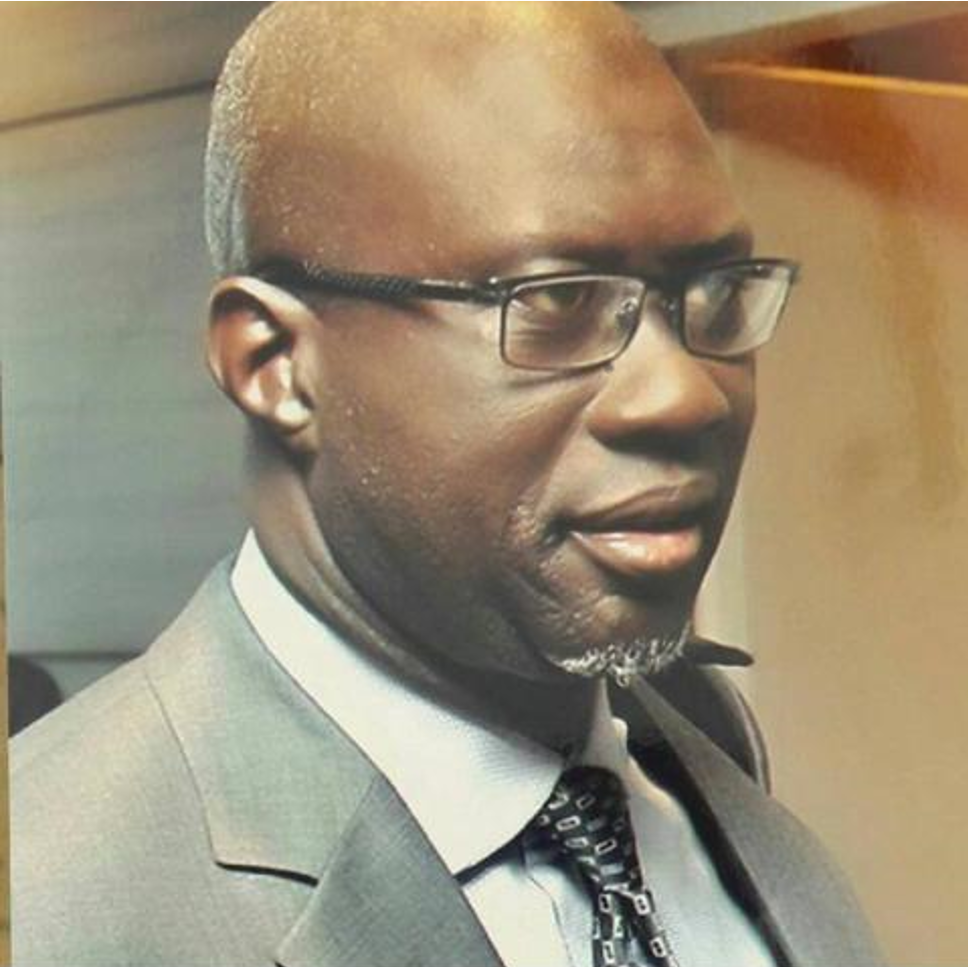
Tandakha
Ndiaye Dieye
Director PVAC – Session in French,Cheikh Anta Diop University
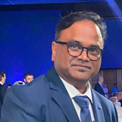
Giridhara
Rathnaiah Babu
Director PVAC- Session in English,Qatar University
Kamel Senouci
Director ADVAC and PVAC
Switzerland
EN/FR
Kamel Senouci is currently the Director of the Advanced Course of Vaccinology (ADVAC)—an advanced vaccinology training for decision makers including academia, industry, governmental and non-governmental agencies—at the University of Geneva, Switzerland.
His career spans over 20 years, where he has worked in various institutions including the French Ministry of Health, the World Health Organization (WHO), UNICEF, and Agence de Médecine Préventive (AMP)—an international NGO. More recently, Kamel was Deputy Director in the Global Development department at the Gates Foundation, overseeing the reinforcement of the Polio Eradication and Immunization Programs.
Kamel has worked in numerous countries all over the world including the Americas, Europe, Africa, Middle East, and Asia. He has focused on public health and health policy in Low- and Middle-Income Countries; immunization; maternal and child health; outbreaks prevention, preparedness and response; health financing and health advocacy.
Kamel is a Medical Doctor with a Public Health Specialty from Paris University. He also holds a Master of Science in Epidemiology from Paris University and a Master of Science, Health policy, planning and financing from the London School of Economics and the London School of Hygiene and Tropical Medicine.
His career spans over 20 years, where he has worked in various institutions including the French Ministry of Health, the World Health Organization (WHO), UNICEF, and Agence de Médecine Préventive (AMP)—an international NGO. More recently, Kamel was Deputy Director in the Global Development department at the Gates Foundation, overseeing the reinforcement of the Polio Eradication and Immunization Programs.
Kamel has worked in numerous countries all over the world including the Americas, Europe, Africa, Middle East, and Asia. He has focused on public health and health policy in Low- and Middle-Income Countries; immunization; maternal and child health; outbreaks prevention, preparedness and response; health financing and health advocacy.
Kamel is a Medical Doctor with a Public Health Specialty from Paris University. He also holds a Master of Science in Epidemiology from Paris University and a Master of Science, Health policy, planning and financing from the London School of Economics and the London School of Hygiene and Tropical Medicine.
Tandakha Ndiaye Dieye
Professor and Director PVAC- Session in French
Senegal
EN/FR
Professor Tandakha Ndiaye Dieye graduated from the Faculty of Medicine, Pharmacy, and Odontostomatology at Cheikh Anta Diop University of Dakar (UCAD) and served as an intern at Dakar hospitals. He continued his studies at the Christian de Duve Institute (ICP) of the Catholic University of Louvain (UCL), where he earned a master’s degree in Immunology. He then obtained a PhD in Immunology from the Free University of Brussels (ULB), focusing on the immunization of HIV-positive individuals receiving various booster vaccines at ULB-ERASME. He was awarded a Fulbright scholarship at the California Department of Public Health (CDPH), Richmond.
Currently, he is a Distinguished Professor and Head of the Immunology Department at the Faculty of Medicine, Pharmacy, and Odontostomatology (FMPO) at Cheikh Anta Diop University of Dakar (UCAD). Dr. Dieye is also the Head of the Laboratory Services at the National Blood Transfusion Center and the Head of the Immunology Platform at the IRESSEF Research Institute in Diamniadio.
Professor Dieye has been deeply involved in vaccinology for over thirty years. He was a member of the NESI (Network of Education to Support Immunization) Oversight Committee and has facilitated several advanced vaccinology courses organized by WHO AFRO in Africa since 2006. He is a member of the Senegalese Technical Advisory Group on Immunization (GTCV) or NITAG and also a member of the Regional Verification Commission (RVC) for the elimination of measles and rubella in Africa.
He is the principal investigator for several vaccine trials on tuberculosis (TB), Ebola, malaria, and more recently, the human papillomavirus (HPV) vaccine. Dr. Dieye is the past President of the African Society for Immunodeficiencies (ASID). He has established research and care activities for primary immunodeficiencies (PIDs) in Senegal since 2009. Currently, more than fifty patients with PIDs (IEIs) are regularly monitored. He is also the founder of the Senegalese Association for Primary Immunodeficiencies (ASDIP).
Author of around sixty scientific articles and books, he serves on several national and international scientific committees. He is a member of the editorial board of journals, including the Journal of Human Immunity (JHI). He is a member of numerous scientific societies, including the African Society Against AIDS (SAA), where he served as Secretary-General. Professor Dieye has been the coordinator (Director) of the AFRO ADVAC Francophone course in Dakar since 2024.
Currently, he is a Distinguished Professor and Head of the Immunology Department at the Faculty of Medicine, Pharmacy, and Odontostomatology (FMPO) at Cheikh Anta Diop University of Dakar (UCAD). Dr. Dieye is also the Head of the Laboratory Services at the National Blood Transfusion Center and the Head of the Immunology Platform at the IRESSEF Research Institute in Diamniadio.
Professor Dieye has been deeply involved in vaccinology for over thirty years. He was a member of the NESI (Network of Education to Support Immunization) Oversight Committee and has facilitated several advanced vaccinology courses organized by WHO AFRO in Africa since 2006. He is a member of the Senegalese Technical Advisory Group on Immunization (GTCV) or NITAG and also a member of the Regional Verification Commission (RVC) for the elimination of measles and rubella in Africa.
He is the principal investigator for several vaccine trials on tuberculosis (TB), Ebola, malaria, and more recently, the human papillomavirus (HPV) vaccine. Dr. Dieye is the past President of the African Society for Immunodeficiencies (ASID). He has established research and care activities for primary immunodeficiencies (PIDs) in Senegal since 2009. Currently, more than fifty patients with PIDs (IEIs) are regularly monitored. He is also the founder of the Senegalese Association for Primary Immunodeficiencies (ASDIP).
Author of around sixty scientific articles and books, he serves on several national and international scientific committees. He is a member of the editorial board of journals, including the Journal of Human Immunity (JHI). He is a member of numerous scientific societies, including the African Society Against AIDS (SAA), where he served as Secretary-General. Professor Dieye has been the coordinator (Director) of the AFRO ADVAC Francophone course in Dakar since 2024.
Giridhara Rathnaiah Babu
Professor and Director PVAC- Session in English, Qatar University
Qatar
EN
Dr. Babu graduated from Kasturba Medical College, Manipal, India, where he earned his Bachelor of Medicine and Bachelor of Surgery (MBBS) degrees. He furthered his studies at the University of California, Los Angeles, where he obtained his Master’s and PhD in Public Health. He is a Professor of Population medicine at Qatar University and a Visiting Professor at Maastricht University. He served as professor and head of the Life Course in Epidemiology at the Public Health Foundation of India. In an earlier role, he worked as Surveillance Medical Officer for the World Health Organization, where he led polio eradication efforts in Karnataka and other high-risk areas, and initiated Measles surveillance that contributed to developing a national measles elimination plan.
His research focuses on the impact of maternal health on child outcomes. He led several significant projects, including research on the transgenerational effects of maternal glucose on childhood obesity, and the COINCIDE project, which examines the nutritional, psychosocial, and environmental determinants of child neurodevelopment and mental health. Prof. Babu is the principal investigator for several major research grants. His notable projects include a Wellcome Trust-DBT India Alliance-funded study on the transgenerational association of maternal glucose with childhood obesity and the role of behavioral and environmental factors (TAGORE).
Prof. Babu’s career is marked by his commitment to advancing public health through research, policy participation, and education. An accomplished author, Dr. Babu has contributed over 221 peer-reviewed articles and books. His scholarly work is reflected in his inclusion in Stanford University’s list of World’s Top 2% scientists. He serves on several national and international committees, including the Lancet Commission Task Force on COVID-19 and the Indian Council of Medical Research’s Task Force for COVID-19. He has also played advisory roles for multiple state government health initiatives in Karnataka. He is a member of several professional societies, including the International Epidemiological Association and the Indian Public Health Association. He has held the position of regional representative for LMICs on the Developmental Origins of Health and Disease (DOHaD) international society.
His research focuses on the impact of maternal health on child outcomes. He led several significant projects, including research on the transgenerational effects of maternal glucose on childhood obesity, and the COINCIDE project, which examines the nutritional, psychosocial, and environmental determinants of child neurodevelopment and mental health. Prof. Babu is the principal investigator for several major research grants. His notable projects include a Wellcome Trust-DBT India Alliance-funded study on the transgenerational association of maternal glucose with childhood obesity and the role of behavioral and environmental factors (TAGORE).
Prof. Babu’s career is marked by his commitment to advancing public health through research, policy participation, and education. An accomplished author, Dr. Babu has contributed over 221 peer-reviewed articles and books. His scholarly work is reflected in his inclusion in Stanford University’s list of World’s Top 2% scientists. He serves on several national and international committees, including the Lancet Commission Task Force on COVID-19 and the Indian Council of Medical Research’s Task Force for COVID-19. He has also played advisory roles for multiple state government health initiatives in Karnataka. He is a member of several professional societies, including the International Epidemiological Association and the Indian Public Health Association. He has held the position of regional representative for LMICs on the Developmental Origins of Health and Disease (DOHaD) international society.
Scientific Committee members
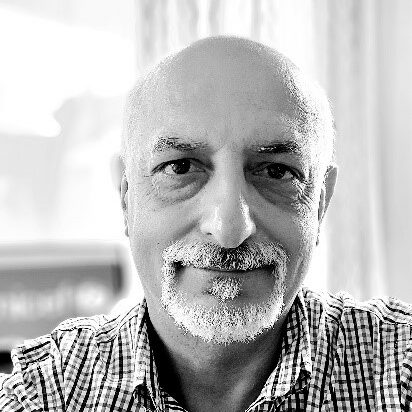
Ahmet
Afşar
UNICEF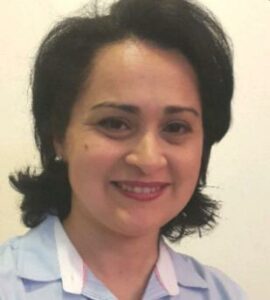
Dahbia Leila
Anes-Boulahbal
Pasteur Institute of Algeria 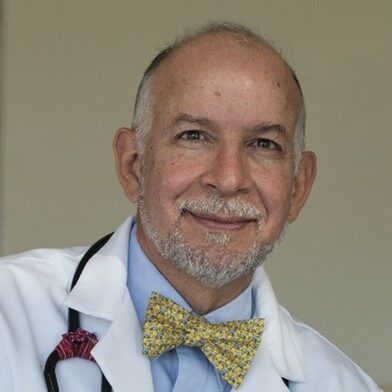
Edwin
Asturias
University of ColoradoSchool of Medicine
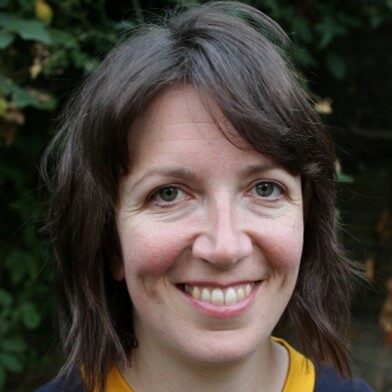
Isobel
Blake
Imperial CollegeLondon
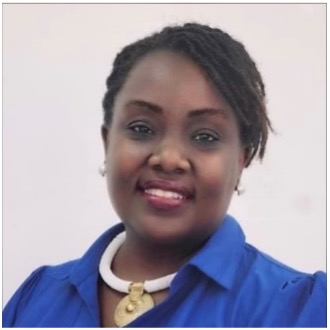
Fiona
Braka
WHO Ghana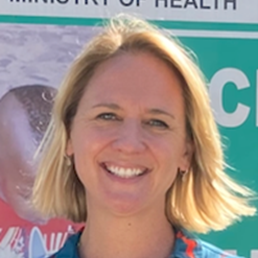
Katy
Clark
Gavi, the Vaccine Alliance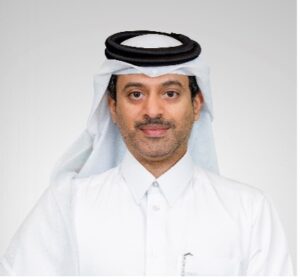
Hamad
Eid Al Romaihi
Supreme Council of Health, Qatar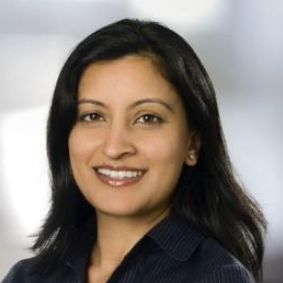
Suchita
Guntakatta
Gates Foundation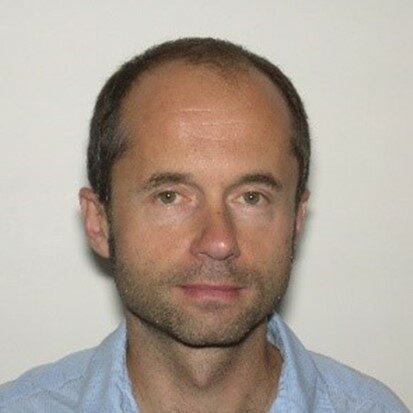
Ondrej
Mach
WHO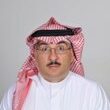
Ziad
A. Memish
Alfaisal University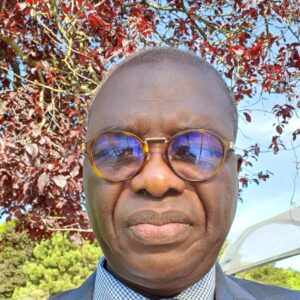
Modjirom
Ndoutabe
WHO – Republic of Congo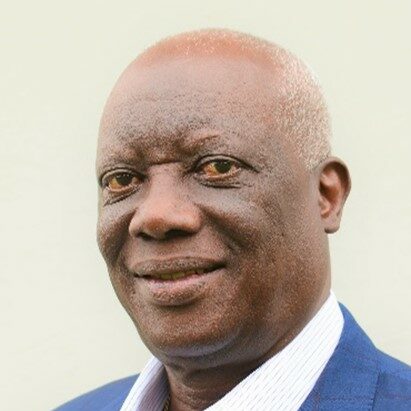
Deo
Nshimirimana
Independent GlobalHealth Consultant
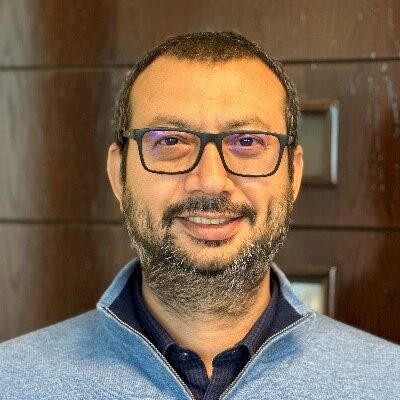
Hemant
Shukla
WHO – Eastern Mediterranean Regional Office
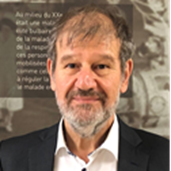
Michel
Zaffran
Rotary International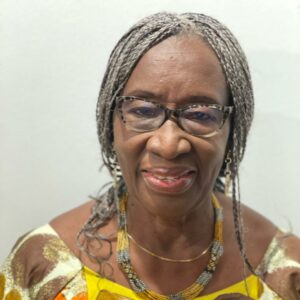
Rose
Gana Fomban Leke
University of Yaounde
TBC
TBC
Ahmet Afşar
Cold chain and logistics specialist covering vaccine management, Polio Outbreak Team
Switzerland
EN
Dr. Ahmet Afşar is a public health expert specializing in vaccine and pharmaceutical supply chain management with more than three decades of working experience in health logistics, M&E, and capacity building.
He started working at provincial and national levels in the Turkish Ministry of Health and managed various health programs on maternal health, immunization, and polio eradication.
As an independent consultant, he has supported international organizations such as WHO, UNICEF, and UNFPA on supply chain evaluation and improvement in numerous developing and middle/high-income countries in Europe, Asia, and Africa.
He is the cold chain and logistics specialist covering vaccine management in the UNICEF HQ Polio Outbreak Team.
He started working at provincial and national levels in the Turkish Ministry of Health and managed various health programs on maternal health, immunization, and polio eradication.
As an independent consultant, he has supported international organizations such as WHO, UNICEF, and UNFPA on supply chain evaluation and improvement in numerous developing and middle/high-income countries in Europe, Asia, and Africa.
He is the cold chain and logistics specialist covering vaccine management in the UNICEF HQ Polio Outbreak Team.
Dahbia Leila ANES-BOULAHBAL
Pasteur Institute of Algeria – DVM – Virologist | Enterovirus Lab (WHO Polio Reference Lab)
Algeria
EN/FR
Dr. Dahbia Leila ANES-BOULAHBAL is a virologist at the Pasteur Institute of Algeria, where she has served since 2017 as Head of the WHO National Polio Reference Laboratory. With over two decades of experience, she is actively involved in polio immunization activities in Algeria, working closely with national authorities and international partners to strengthen the country’s response to polio eradication.
Her role includes coordinating laboratory-based surveillance, supporting outbreak investigations, and contributing to the integration of surveillance and vaccination data. In 2022, she was a member of the OBRA mission (Outbreak Response Assessment) in Rwanda, contributing her expertise to evaluate vaccination strategies and response effectiveness for the lab and Environmental pillar.
Dr. ANES-BOULAHBAL has extensive experience in environmental surveillance (ES) for poliovirus. Her leadership in this field led to her current position as a consultant at WHO’s Regional Emergency Hub in Dakar, where she now supports multipathogen Wastewater Environmental Surveillance (WES) initiatives across the WHO African region. Her technical background in environmental surveillance of enteroviruses has made her a regional resource person for WES implementation.
She is an active member of several national and international committees for polio eradication, certification and containment. In Algeria, she also contributes to the training of public health professionals and laboratory staff, and has been involved in developing and delivering courses on biosafety, infectious substances shipping, and sample management.
Dr. ANES-BOULAHBAL regularly speaks at national and international conferences and has co-authored several scientific publications and technical manuals related to enteroviruses, environmental surveillance, Biosafety and laboratory quality systems.
Edwin Asturias
Professor of Pediatrics and Epidemiology
USA
EN
Dr. Edwin Asturias is a pediatric infectious disease specialist and professor at the University of Colorado Anschutz Medical Campus, where he is also the Director of Latin American Projects at the Center for Global Health. He holds the Jules Amer chair in community pediatrics. He earned his medical degree from San Carlos University in Guatemala in 1989 and completed his pediatric residency at the University of Colorado in 1995. He further specialized in pediatric infectious diseases at Johns Hopkins School of Medicine. His career has been marked by significant contributions to the study and control of infectious diseases thru vaccines. Dr. Asturias has conducted numerous epidemiological studies to evaluate the efficacy and safety of vaccines against poliomyelitis, especially leading the initial studies on the combined use of bOPV-IPV that provided the evidence for the polio switch in resource-poor countries. Dr. Asturias has served on the Guatemalan National Committee for Immunization Practices and the Poliovirus Contention Commission, the World Health Organization Global Advisory Committee on Vaccine Safety, and currently a voting member to the Advisory Committee of Immunization Practices in the United States of America. He has also served as part of the Scientific Committee and helps coordinate and evaluate the Advance Vaccinology Course of the University of Geneva for the past 20 years.
Dr. Asturias continues to play a vital role in advancing our understanding of infectious diseases and improving vaccine policies to protect vulnerable populations worldwide.
Dr. Asturias continues to play a vital role in advancing our understanding of infectious diseases and improving vaccine policies to protect vulnerable populations worldwide.
Isobel Blake
Senior Lecturer
United Kingdom
EN
Isobel is an infectious disease epidemiologist and a Senior Lecturer at Imperial College London. She works in the MRC Centre for Global Infectious Disease Analysis, School of Public Health and leads a research group conducting polio analysis and modelling, who are a collaborating partner of WHO. Her research focuses on assessing vaccine effectiveness and population immunity from both oral and inactivated polio vaccines, quantifying the risk of poliovirus spatial spread, estimating the risk of emergence of vaccine-derived polioviruses and quantifying drivers of timely surveillance. Her research uses both mathematical and statistical methods to analyse polio surveillance and vaccination data, with a particular focus on identifying spatial heterogeneities. She has published in over 40 peer-reviewed medical journals (including New England Journal of Medicine, Lancet Infectious Diseases and PLOS Medicine), and her research is aimed at having direct programmatic relevance to GPEI whereby she is a member of several Global Polio Eradication Initiative Global Program Support groups.
Isobel obtained her PhD in Infectious Disease Epidemiology at Imperial College London, modelling the neglected tropical disease trachoma. In addition to working on polio over the last ten years she was also part of the WHO Ebola Response Team, who provided real-time epidemiological analyses during the West African Ebola outbreak 2013-2015, and she is part of a collaboration with icddrb and University of Virginia evaluating the use of sewage surveillance for multiple infectious diseases for public health impact.
Isobel obtained her PhD in Infectious Disease Epidemiology at Imperial College London, modelling the neglected tropical disease trachoma. In addition to working on polio over the last ten years she was also part of the WHO Ebola Response Team, who provided real-time epidemiological analyses during the West African Ebola outbreak 2013-2015, and she is part of a collaboration with icddrb and University of Virginia evaluating the use of sewage surveillance for multiple infectious diseases for public health impact.
Fiona Braka
WHO Country Representative to Ghana
Ghana
EN/FR
Dr Fiona Braka is a Public Health expert from Uganda with over two decades of progressive experience in disease prevention and control, public health emergency management, strategic leadership and coordination.
Prior to her appointment as WHO Representative to Ghana, she served in different capacities at national and international level with the World Health Organization in Nigeria, Ethiopia and Uganda, where she led large and diverse teams to advance primary health care and health security. She most recently served as the Coordinator of Emergency Response Operations at the World Health Organization Regional Office for Africa (AFRO) based in Brazzaville, Congo for four years. At AFRO, her role entailed leadership of response operations to acute and protracted health emergencies including disease outbreaks and humanitarian crises across 47 countries of the AFRO region; and coordination of support to member states to strengthen their local capacities for health security.
Dr Braka led the WHO effort to eradicate wild polio virus in Nigeria, which led to the certification of the African region as wild polio virus free in 2020. She has supported countries in sub–Saharan Africa particularly Nigeria, Ethiopia and Uganda where she served as Immunization Team Lead, to strengthen their national vaccination programs while expanding access to broader primary health services in advancement of Universal health coverage and health-related SDGs.
Dr Braka has published widely in peer-review journals and continues to strive to contribute to advancement of scientific knowledge and evidence through different platforms. She holds a Medical Degree from Makerere University in Kampala, Uganda and a Master of Public Health Degree from the Johns Hopkins Bloomberg School of Public Health in Maryland, USA.
Prior to her appointment as WHO Representative to Ghana, she served in different capacities at national and international level with the World Health Organization in Nigeria, Ethiopia and Uganda, where she led large and diverse teams to advance primary health care and health security. She most recently served as the Coordinator of Emergency Response Operations at the World Health Organization Regional Office for Africa (AFRO) based in Brazzaville, Congo for four years. At AFRO, her role entailed leadership of response operations to acute and protracted health emergencies including disease outbreaks and humanitarian crises across 47 countries of the AFRO region; and coordination of support to member states to strengthen their local capacities for health security.
Dr Braka led the WHO effort to eradicate wild polio virus in Nigeria, which led to the certification of the African region as wild polio virus free in 2020. She has supported countries in sub–Saharan Africa particularly Nigeria, Ethiopia and Uganda where she served as Immunization Team Lead, to strengthen their national vaccination programs while expanding access to broader primary health services in advancement of Universal health coverage and health-related SDGs.
Dr Braka has published widely in peer-review journals and continues to strive to contribute to advancement of scientific knowledge and evidence through different platforms. She holds a Medical Degree from Makerere University in Kampala, Uganda and a Master of Public Health Degree from the Johns Hopkins Bloomberg School of Public Health in Maryland, USA.
Katy Clark
Senior Program Manager
Switzerland
EN
Katy Clark is a seasoned global health and immunization program specialist with extensive experience across Africa, Central America, and Asia. She currently manages Gavi’s IPV, Hexavalent, Pentavalent, and DTP Boosters Programs and serves as the Gavi alternate on the Global Polio Eradication Initiative (GPEI) Strategy Committee.
Before joining Gavi, Katy was a field representative for the American Red Cross (ARC) in Kenya, where she managed the Measles & Rubella Partnership Team. In this role, she led ARC’s flagship program to identify zero-dose children and reach missed communities. Prior to her tenure at ARC, Katy served as an immunization officer and project director at the International Federation of Red Cross and Red Crescent Societies (IFRC). Her work at IFRC focused on building the capacity of IFRC delegations and Red Cross and Red Crescent National Societies to support immunization and primary health care service delivery, particularly in high-risk polio geographies such as Nigeria, Pakistan, Afghanistan, and the Central African Republic (CAR). Before IFRC, she worked as a public health advisor at the US Centers for Disease Control and Prevention (CDC), supporting the Stop Transmission of Polio (STOP) Program and CDC’s Ebola vaccine trial in Sierra Leone, among other global immunization initiatives.
Katy’s career in public health began with the Peace Corps in rural Guatemala, where she contributed to community-based health and HIV prevention efforts. She holds an MPH in Health Policy and Global Health from Yale University and a BA in History from UCLA.
Before joining Gavi, Katy was a field representative for the American Red Cross (ARC) in Kenya, where she managed the Measles & Rubella Partnership Team. In this role, she led ARC’s flagship program to identify zero-dose children and reach missed communities. Prior to her tenure at ARC, Katy served as an immunization officer and project director at the International Federation of Red Cross and Red Crescent Societies (IFRC). Her work at IFRC focused on building the capacity of IFRC delegations and Red Cross and Red Crescent National Societies to support immunization and primary health care service delivery, particularly in high-risk polio geographies such as Nigeria, Pakistan, Afghanistan, and the Central African Republic (CAR). Before IFRC, she worked as a public health advisor at the US Centers for Disease Control and Prevention (CDC), supporting the Stop Transmission of Polio (STOP) Program and CDC’s Ebola vaccine trial in Sierra Leone, among other global immunization initiatives.
Katy’s career in public health began with the Peace Corps in rural Guatemala, where she contributed to community-based health and HIV prevention efforts. She holds an MPH in Health Policy and Global Health from Yale University and a BA in History from UCLA.
Hamad Eid Al Romaihi
Consultant, Community Medicine and Head of Surveillance and Outbreak Control, Supreme Council of Health, Qatar
Qatar
EN
Dr. Hamad Eid Al Romaihi is a Senior Consultant in Community Medicine and Director of the Health Protection and Communicable Disease Control Department at Qatar’s Ministry of Public Health. He earned his medical degree from Arabian Gulf University’s Medical College in Bahrain, completed his Arab Board training in Community Medicine in Qatar, and holds a Fellowship in Travel Medicine from the Royal College of Physicians and Surgeons of Glasgow.
He oversees Qatar’s National Vaccination Program, and the implementation of immunization initiatives under the National Health Strategy (NHS), with a focus on expanding vaccine coverage and improving efforts against vaccine-preventable diseases.
He serves as a non-core member of Qatar’s National Immunization Technical Advisory Group (NITAG) and contributes to the National Certification Committee (NCC) for Polio, by providing data on the burden of vaccine-preventable diseases, including acute flaccid paralysis (AFP).
Dr. Al Romaihi regularly attends global and regional forums on polio eradication, such as the WHO’s Regional Subcommittee for Polio Eradication and Outbreaks, contributing to the advancement of vaccination strategies and public health policies to meet the polio eradication targets.
He oversees Qatar’s National Vaccination Program, and the implementation of immunization initiatives under the National Health Strategy (NHS), with a focus on expanding vaccine coverage and improving efforts against vaccine-preventable diseases.
He serves as a non-core member of Qatar’s National Immunization Technical Advisory Group (NITAG) and contributes to the National Certification Committee (NCC) for Polio, by providing data on the burden of vaccine-preventable diseases, including acute flaccid paralysis (AFP).
Dr. Al Romaihi regularly attends global and regional forums on polio eradication, such as the WHO’s Regional Subcommittee for Polio Eradication and Outbreaks, contributing to the advancement of vaccination strategies and public health policies to meet the polio eradication targets.
Suchita Guntakatta
Deputy Director, Global Development Polio team
USA
EN
Suchita Guntakatta is the Deputy Director, for the Global Development Polio team at the Bill & Melinda Gates Foundation. In this capacity, she is responsible for leading the strategic, financial, partners management, risk and problem resolution, and operational activities and processes for the team. A significant part of the role is to be the interface internally with the other divisions and operations groups across the foundation as well as externally as a foundation representative within the Global Polio Eradication Initiative (GPEI) partnership.
Suchita brings over 15 years of corporate and management consulting experience in strategy planning, operations, and portfolio management. Prior to joining the foundation, Suchita was Vice President, Corporate Operations Strategy & Planning with Discovery Communications, Inc. During her time at Discovery Communications, she worked on assisting and guiding the process to translate corporate strategy into day-to-day operations.
Prior to Discovery Communications, she was at Accenture for 10 years as a management consultant working with technology and media companies. During her time with Accenture, she worked on organizational performance and restructuring projects for her client. She also has experience with process design, re-engineering and improvement efforts that included change management activities to implement the change effectively.
Suchita works out of the Gates Foundation Washington, D.C. office, been with the foundation since March 2009 and is a graduate of the University of Maryland. She has been involved within her community through the years in volunteer programs teaching low-income adults go back for their high school diplomas, working with women’s groups providing educational support and microfinance loans to women survivors of war and poverty.
Suchita brings over 15 years of corporate and management consulting experience in strategy planning, operations, and portfolio management. Prior to joining the foundation, Suchita was Vice President, Corporate Operations Strategy & Planning with Discovery Communications, Inc. During her time at Discovery Communications, she worked on assisting and guiding the process to translate corporate strategy into day-to-day operations.
Prior to Discovery Communications, she was at Accenture for 10 years as a management consultant working with technology and media companies. During her time with Accenture, she worked on organizational performance and restructuring projects for her client. She also has experience with process design, re-engineering and improvement efforts that included change management activities to implement the change effectively.
Suchita works out of the Gates Foundation Washington, D.C. office, been with the foundation since March 2009 and is a graduate of the University of Maryland. She has been involved within her community through the years in volunteer programs teaching low-income adults go back for their high school diplomas, working with women’s groups providing educational support and microfinance loans to women survivors of war and poverty.
Ondrej Mach
Team Leader, Research and Product Development Team, Polio Eradication Department, WHO
Switzerland
EN
Dr. Ondrej Mach is a Team Leader of the Research and Product Development Team within the Polio Eradication Department of the World Health Organization (WHO) based in Geneva. In his capacity he is responsible to manage polio related studies and clinical trials and to support polio eradication efforts in the high priority countries.
Prior to his engagement at the WHO, Dr Mach worked for the Centers of Disease Control and Prevention in Atlanta (CDC) as an epidemiologist; and prior to that he practiced family medicine in various countries such as Bolivia, Burundi or Bosnia and Herzegovina.
Dr. Mach graduated from the medical school in Prague and obtained his Public Health Degree at the Harvard School of Public Health in Boston. He also graduated from the Epidemic Intelligence Service fellowship at the CDC.
Prior to his engagement at the WHO, Dr Mach worked for the Centers of Disease Control and Prevention in Atlanta (CDC) as an epidemiologist; and prior to that he practiced family medicine in various countries such as Bolivia, Burundi or Bosnia and Herzegovina.
Dr. Mach graduated from the medical school in Prague and obtained his Public Health Degree at the Harvard School of Public Health in Boston. He also graduated from the Epidemic Intelligence Service fellowship at the CDC.
Ziad A. Memish
Advisor, King Salman Humanitarian Aid & Relief Center
Professor, College of Medicine
Professor, College of Medicine
Saudi Arabia
EN
Ziad Memish is currently an Advisor to the Supervisor General of King Salman Humanitarian Aid & Relief Center (KSrelief) for Medical & Humanitarian Research. Professor of infectious diseases at the College of Medicine in Alfaisal University, Riyadh, Saudi Arabia.
He obtained his MD from the University of Ottawa, Ottawa, Canada in 1987 and is Board certified by the American Board of Internal Medicine, the American Board of Infectious Diseases as well as a Fellow of the Royal College of Physicians (Canada, Edinburgh, and London) and the American College of Physicians. He received the King Abdulaziz Medal from the first degree in 2007, the highest national award for his achievements in Infectious diseases and infection control in KSA also received Minister of Health Award for leadership in research for over 10 years in 2019. A Highly Cited Researchers” for exceptional research performance by production of multiple highly cited papers (those that rank in the top 1% by citation in the field) by the Web of Science (Clarivate analytics) 2018, 2019, 2020, 2021, 2022, 2023, 2024. Awarded the “the Health Research Excellence: Lifetime achievement award” by Research Development & Innovation Authority Oct 2024. He is the EIC of 4 medical journals, presented extensively nationally and internationally and has published more than 900 papers and book chapters.
He obtained his MD from the University of Ottawa, Ottawa, Canada in 1987 and is Board certified by the American Board of Internal Medicine, the American Board of Infectious Diseases as well as a Fellow of the Royal College of Physicians (Canada, Edinburgh, and London) and the American College of Physicians. He received the King Abdulaziz Medal from the first degree in 2007, the highest national award for his achievements in Infectious diseases and infection control in KSA also received Minister of Health Award for leadership in research for over 10 years in 2019. A Highly Cited Researchers” for exceptional research performance by production of multiple highly cited papers (those that rank in the top 1% by citation in the field) by the Web of Science (Clarivate analytics) 2018, 2019, 2020, 2021, 2022, 2023, 2024. Awarded the “the Health Research Excellence: Lifetime achievement award” by Research Development & Innovation Authority Oct 2024. He is the EIC of 4 medical journals, presented extensively nationally and internationally and has published more than 900 papers and book chapters.
Modjirom Ndoutabe
PEP Coordinator
Côte d’Ivoire
EN/FR
I am Ndoutabe Modjirom. Chadian. Medical Officer since 1993. Graduated from the Abidjan Faculty of Medicine (University National of Cote d’Ivoire). I was Resident for Public Health and Community Medicine at the Côte d’Ivoire Faculty of Medicine (Interne des Hôpitaux d’Abidjan) and Lecturer rank B for Public Health and Community Medicinein this Faculty for 5 years (Assistant Chef de Clinique). I was the Head of Immunization Center at the Public National Institute of Hygiene of Cote d’Ivoire for 5 years simultaneously with my position as Lecturer rank B.
In 1999, I was involved like Facilitators for the first course of Field Epidemiology organized by AMP (Agence de la Medecine Preventive) in Dakar at CESAG. I did it for three cohorts consecutive.
In 2000 I joined WHO like International Consultant for Niger to support this country to implement polio activities (surveillance, campaigns, …) against the Wild Poliovirus Type 1.
In 2003, I have been appointed by WHO like Vaccine Preventable Diseases Focal Person in Mali. I spent 9 years at this position.
In 2011 I was appointed like Polio Focal Person at the Intercountry Support Team (IST) West Africa. At this position I managed 17 countries and contributed to stop the WPV1 circulation in West Africa Countries except Nigeria.
In February 2018, I was appointed like GPEI Coordinator for DRC. It was the first experience of the local coordination for Polio Outbreak by all the partners in one country. The experience of this partnership led to the appointments of GPEI Coordinators for all Polio outbreaks countries.
In September 2019, I was appointed like the Rapid Response Team Coordinator for Polio Outbreaks in AFRO till now. I assumed the interim of PEP Coordinator for AFRO (WHO) from February to November 2022 and from March 2025 till now.
In 1999, I was involved like Facilitators for the first course of Field Epidemiology organized by AMP (Agence de la Medecine Preventive) in Dakar at CESAG. I did it for three cohorts consecutive.
In 2000 I joined WHO like International Consultant for Niger to support this country to implement polio activities (surveillance, campaigns, …) against the Wild Poliovirus Type 1.
In 2003, I have been appointed by WHO like Vaccine Preventable Diseases Focal Person in Mali. I spent 9 years at this position.
In 2011 I was appointed like Polio Focal Person at the Intercountry Support Team (IST) West Africa. At this position I managed 17 countries and contributed to stop the WPV1 circulation in West Africa Countries except Nigeria.
In February 2018, I was appointed like GPEI Coordinator for DRC. It was the first experience of the local coordination for Polio Outbreak by all the partners in one country. The experience of this partnership led to the appointments of GPEI Coordinators for all Polio outbreaks countries.
In September 2019, I was appointed like the Rapid Response Team Coordinator for Polio Outbreaks in AFRO till now. I assumed the interim of PEP Coordinator for AFRO (WHO) from February to November 2022 and from March 2025 till now.
Deo Nshimirimana
Independent Global Health Consultant
Democratic Republic of the Congo
EN/FR
Dr. Deo Nshimirimana is a global health consultant who specializes in health systems’ strengthening with a view to sustainably improving country health system performance. He also specializes in immunization in emergency settings and is the current Chair of the World Health Organization (WHO) Emergency Preparedness and Response Technical Advisory Group for the African Region.
Dr. Nshimirimana retired from the WHO in 2018 as the WHO Representative in Senegal. Prior to serving in Senegal, he was the Director of the Emergencies, Immunization & Vaccine Development Cluster at the WHO Regional Office for Africa.
After retirement, Dr. Nshimirimana served as acting WHO Representative for 11 months in the DRCongo during the Ebola outbreak in North Kivu province and Ituri. Concurrently, he dealt with a massive measles outbreak (6,000 deaths); multiple cVDPV type 2 outbreaks in different provinces in addition to a cholera outbreak in Eastern DRCongo. Dr. Nshimirimana previously played an active role in Universal Health Coverage scoping missions in DRCongo and Mauritania and currently is a member of the WHO/Africa Regional Immunization Technical Advisory Group.
Dr. Nshimirimana retired from the WHO in 2018 as the WHO Representative in Senegal. Prior to serving in Senegal, he was the Director of the Emergencies, Immunization & Vaccine Development Cluster at the WHO Regional Office for Africa.
After retirement, Dr. Nshimirimana served as acting WHO Representative for 11 months in the DRCongo during the Ebola outbreak in North Kivu province and Ituri. Concurrently, he dealt with a massive measles outbreak (6,000 deaths); multiple cVDPV type 2 outbreaks in different provinces in addition to a cholera outbreak in Eastern DRCongo. Dr. Nshimirimana previously played an active role in Universal Health Coverage scoping missions in DRCongo and Mauritania and currently is a member of the WHO/Africa Regional Immunization Technical Advisory Group.
Hemant Shukla
Coordinator – Surveillance, Laboratory and Data, Polio Eradication, Eastern Mediterranean Regional Office
Jordan
EN
Dr Shukla is currently serving as the Coordinator Surveillance, Laboratory and Data in polio eradication programme at the Eastern Mediterranean Regional Office of World Health Organization. Prior to taking the current role, Dr Shukla led Country Support team for polio at the Eastern Mediterranean Regional Office for more than three years, leading polio outbreak response activities in the region.
Dr Shukla led polio eradication efforts of Afghanistan as the Team Leader for Polio at World Health Organization office for Afghanistan through July 2019. Prior to that appointment, Dr Shukla served at WHO Headquarters, Geneva from 2013 to 2015, supporting Horn of Africa countries in polio outbreak response.
Dr Shukla previously led WHO’s polio eradication and immunization strengthening efforts in Bihar state of India, managing extensive network of more than 1000 field staff.
Dr Shukla completed his M.D. from All India Institute of Medical Sciences, Delhi, India, specializing in Community Medicine and obtained his MBBS degree from Bangalore Medical College & Research Institute, Bangalore University in India.
Dr Shukla led polio eradication efforts of Afghanistan as the Team Leader for Polio at World Health Organization office for Afghanistan through July 2019. Prior to that appointment, Dr Shukla served at WHO Headquarters, Geneva from 2013 to 2015, supporting Horn of Africa countries in polio outbreak response.
Dr Shukla previously led WHO’s polio eradication and immunization strengthening efforts in Bihar state of India, managing extensive network of more than 1000 field staff.
Dr Shukla completed his M.D. from All India Institute of Medical Sciences, Delhi, India, specializing in Community Medicine and obtained his MBBS degree from Bangalore Medical College & Research Institute, Bangalore University in India.
Michel Zaffran
Regional Vice-Chair, South Europe ’s End Polio Now Countdown to History Campaign Committee
Switzerland
EN/FR
Michel Zaffran is Regional Vice-Chair for south Europe of Rotary International’s End Polio Now Countdown to History Campaign Committee. He chairs the PolioPlus commission for District 1710 (Lyon Region) and is the past President of Rotary Club Gex-Divonne (Pays de Gex).
During the period 2021-2023, he was the End Polio Now Coordinator for Region 14 (France, French speaking Belgium, Andorra and Monaco)
During the period 2016-2021, Michel Zaffran was the Director of the Polio Eradication programme at the World Health Organization. During that time, he was also the chair of the Strategy Committee of the Global Polio Eradication initiative (GPEI).
He retired from WHO In March of 2021 after 33 years of service during which he has held several positions:
Director of the Expanded Programme on Immunization, Director of project Optimize, a WHO-PATH collaboration aimed at catalyzing a shared vision of the future of immunization logistics and supply chain systems, Coordinator in charge of Vaccine Prequalification, Vaccine Supply Chain Management, and Financing of immunization programmes, WHO representative on the Working Group which designed and Launched Gavi, the Vaccine Alliance, Deputy Executive Secretary of Gavi in 2006-2007.
Michel Zaffran is a French National born in Algeria. He holds a master’s degree in engineering from Ecole Centrale (France) and a certificate in Tropical Epidemiology.
During the period 2021-2023, he was the End Polio Now Coordinator for Region 14 (France, French speaking Belgium, Andorra and Monaco)
During the period 2016-2021, Michel Zaffran was the Director of the Polio Eradication programme at the World Health Organization. During that time, he was also the chair of the Strategy Committee of the Global Polio Eradication initiative (GPEI).
He retired from WHO In March of 2021 after 33 years of service during which he has held several positions:
Director of the Expanded Programme on Immunization, Director of project Optimize, a WHO-PATH collaboration aimed at catalyzing a shared vision of the future of immunization logistics and supply chain systems, Coordinator in charge of Vaccine Prequalification, Vaccine Supply Chain Management, and Financing of immunization programmes, WHO representative on the Working Group which designed and Launched Gavi, the Vaccine Alliance, Deputy Executive Secretary of Gavi in 2006-2007.
Michel Zaffran is a French National born in Algeria. He holds a master’s degree in engineering from Ecole Centrale (France) and a certificate in Tropical Epidemiology.
Rose Ganan Fomban Leke
Emeritus Professor
Cameroon
EN/FR
Emeritus Professor Rose Gana Fomban Leke, Professor of Immunology/ Parasitology, Fellow of the Cameroon Academy of Sciences, The African Academy of Science, The World Academy of Science. Until March 2013, Head of Department at the Faculty of Medicine and Biomedical Sciences, University of Yaounde 1, Director of the Biotechnology Centre. Chair of the Board of Directors of the National Medical Research Institute, IMPM, Vice President of the Scientific Committee of Cameroon First Lady’s Research Centre (CIRCB). The 2014 Aggrey-Fraser-Guggisberg Memorial Lecturer at the University of Ghana, awarded Doctor Honoris Causa (DSc).
In 2011, received the African Union Kwame Nkrumah Scientific Award for Women. Elected International Honorary Fellow of the American Society of Tropical Medicine and Hygiene ASTMH in 2015. Has been member of the Canada Gairdner Foundation Global Health Award Advisory Committee. Elected one of nine women as HEROINE OF HEALTH 2018
In 2018, crowned by the Cameroon Medical Council as QUEEN MOTHER OF THE CAMEROONIAN MEDICAL COMMUNITY
FORBES AFRICA April/May 2021 Edition named her as ICON #24.
December 2022 award: Achievement in Global Health Leadership, by the AU and Africa CDC
February 2023, appointed Chair of the Independent Review Committee (IRC) of the GAVI Alliance
Received October 14 in Berlin the 2023 Virchow Prize for Global Health
Received the L OREAL UNESCO INTERNATIONAL PRIZE FOR WOMEN IN SCIENCE AFRCA AND ARAB WORLD May 2024
Chair of the Multilateral Initiative in Malaria (MIM) Secretariat.
Was President of FAIS and Council member of IUIS for two terms.s
Consultant on many committees for the World Health Organization (WHO): the Malaria Policy Advisory Committee (MPAC), The Malaria Elimination Oversight Committee. Chair of the African Regional Commission for the Certification of the Eradication of Poliomyelitis (ARCC) since 1999, and read the declaration on August 25 2020, to announce Africa free from indigenous Wild Polio Virus. One of the six members of the Global Certification Commission (GCC), the member for the African Region.
Been a member and Chair of the African AACHR and the Global ACHR, a Board member of the Global Forum for Health Research, and since 2013 serves on the WHO Emergency Committee for Polio eradication.
Has served as Vice-Chair of first Technical Evaluation Reference group (TERG) of the Global Fund.
Has been very effective in training the next generation of scientists, MDs, MSc, PhD, national and international, and continues to do so through the HIGHER WOMEN CONSORTIUM CAMEROON, a holistic mentoring program, one of her very successful initiatives.
In 2011, received the African Union Kwame Nkrumah Scientific Award for Women. Elected International Honorary Fellow of the American Society of Tropical Medicine and Hygiene ASTMH in 2015. Has been member of the Canada Gairdner Foundation Global Health Award Advisory Committee. Elected one of nine women as HEROINE OF HEALTH 2018
In 2018, crowned by the Cameroon Medical Council as QUEEN MOTHER OF THE CAMEROONIAN MEDICAL COMMUNITY
FORBES AFRICA April/May 2021 Edition named her as ICON #24.
December 2022 award: Achievement in Global Health Leadership, by the AU and Africa CDC
February 2023, appointed Chair of the Independent Review Committee (IRC) of the GAVI Alliance
Received October 14 in Berlin the 2023 Virchow Prize for Global Health
Received the L OREAL UNESCO INTERNATIONAL PRIZE FOR WOMEN IN SCIENCE AFRCA AND ARAB WORLD May 2024
Chair of the Multilateral Initiative in Malaria (MIM) Secretariat.
Was President of FAIS and Council member of IUIS for two terms.s
Consultant on many committees for the World Health Organization (WHO): the Malaria Policy Advisory Committee (MPAC), The Malaria Elimination Oversight Committee. Chair of the African Regional Commission for the Certification of the Eradication of Poliomyelitis (ARCC) since 1999, and read the declaration on August 25 2020, to announce Africa free from indigenous Wild Polio Virus. One of the six members of the Global Certification Commission (GCC), the member for the African Region.
Been a member and Chair of the African AACHR and the Global ACHR, a Board member of the Global Forum for Health Research, and since 2013 serves on the WHO Emergency Committee for Polio eradication.
Has served as Vice-Chair of first Technical Evaluation Reference group (TERG) of the Global Fund.
Has been very effective in training the next generation of scientists, MDs, MSc, PhD, national and international, and continues to do so through the HIGHER WOMEN CONSORTIUM CAMEROON, a holistic mentoring program, one of her very successful initiatives.
